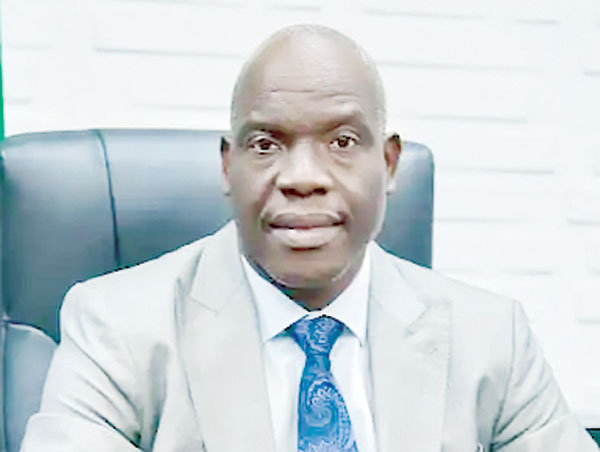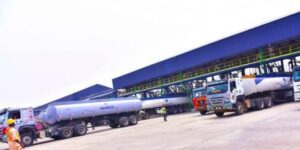

Nigeria may face impending gas supply crisis with shortfall of 3.1 bcf per day by 2030 — NUPRC Chief Executive
By Matthew Denis
The Chief Executive of the Nigeria Upstream Petroleum Regulatory Commission (NUPRC), Engr. Gbenga Komolafe, has warned that Nigeria could face “an impending gas supply crisis with a potential shortfall of 3.1 bcf/day by 2030” if measures are not implemented.
He made this disclosure during the 2024 Association of Energy Correspondents of Nigeria (NAEC) conference held in Lagos on Thursday.
“This NAEC Annual Conference is indeed a unique one with an array of professionals in our energy space. I stand before you, therefore, with immense pride and a profound sense of responsibility as the regulator of Nigeria’s upstream oil and gas today,” he stated.
Komolafe emphasised the significance of the Decade of Gas programme, which aims to position natural gas as a key driver of economic development, energy security, industrialization, and environmental sustainability in Nigeria.
“At the heart of the Decade of Gas programme is the vision to drive infrastructure and industrial development of Nigeria in order to prosper our citizens and make life more meaningful for all,” he noted.
He highlighted that the work done so far has aggregated gas demand and supply views, infrastructure requirements, and a suitable pricing framework essential for unlocking the investments needed to drive the convergence of demand and supply.
“That work reveals that growth in gas demand outstrips supply, driven largely by growth in domestic demand,” he added.
Between 2020 and 2030, demand for gas is expected to grow at a compound annual growth rate of 16.6 percent p.a.
Natural gas production is projected to increase from 8.0 bcfd in 2020 to 12.2 bcfd in 2030, spurred by major projects such as the NLNG Train 7 & Train 8, the Nigeria-Morocco pipeline, and the Ajaokuta-Kaduna-Kano (AKK) Natural Gas Pipeline Project. However, this increase will not meet the projected ‘high case demand’ scenario of 22.2 bcfd in 2030.
Komolafe emphasised the importance of addressing power sector challenges to unlock opportunities in gas development within Nigeria’s upstream sector.
He praised the blueprint for energy transition, stating, “Whereas the global imperatives for energy transition are clear and justified, the need for Nigeria’s energy security, economic development, and prosperity cannot be overemphasised.”
“The agenda for Nigeria, and other resource-rich developing economies, is that the evolving energy dynamics must be calibrated against geography, history, and politics, as well as the need for energy justice, equity, inclusivity, and sustainability,” he added.
He reiterated that Nigeria’s future in the petroleum industry should focus on utilising its natural hydrocarbon resources for shared prosperity and energy independence.
“The government has therefore declared natural gas as our immediate transition fuel because it provides a cleaner alternative to oil and coal,” he stated.
Komolafe further explained that the NUPRC, through the Petroleum Industry Act, 2021 (PIA), is at the forefront of interventions to realise the Decade of Gas by enabling investment in cleaner hydrocarbon development and driving programmes like the Nigerian Gas Flare Commercialisation Programme (NGFCP) for flare elimination and gas monetization.
“The significance of this is that more gas would be available for domestic utilisation as Liquefied Petroleum Gas (LPG), feedstock for power generation plants, fertiliser plants, and petrochemicals,” he noted, highlighting the unique opportunities for investors in these areas.
He pointed out that Nigeria’s energy future faces three interconnected challenges: finance, energy security, and international politics.
“Under the visionary leadership of His Excellency President Bola Ahmed Tinubu and the Honourable Minister of Petroleum Resources, Nigeria has embarked on a transformative agenda that aligns with stringent global standards,” he said.
Komolafe concluded by emphasising that energy security is the cornerstone of national development.
“For Nigeria, this means ensuring that our growing population has access to affordable, reliable energy while maintaining a balanced energy mix that protects us from volatility and geopolitics in global markets.”
He added that Nigeria is well-positioned to become a superpower in the energy transition era, given its large population and abundant gas resources.



